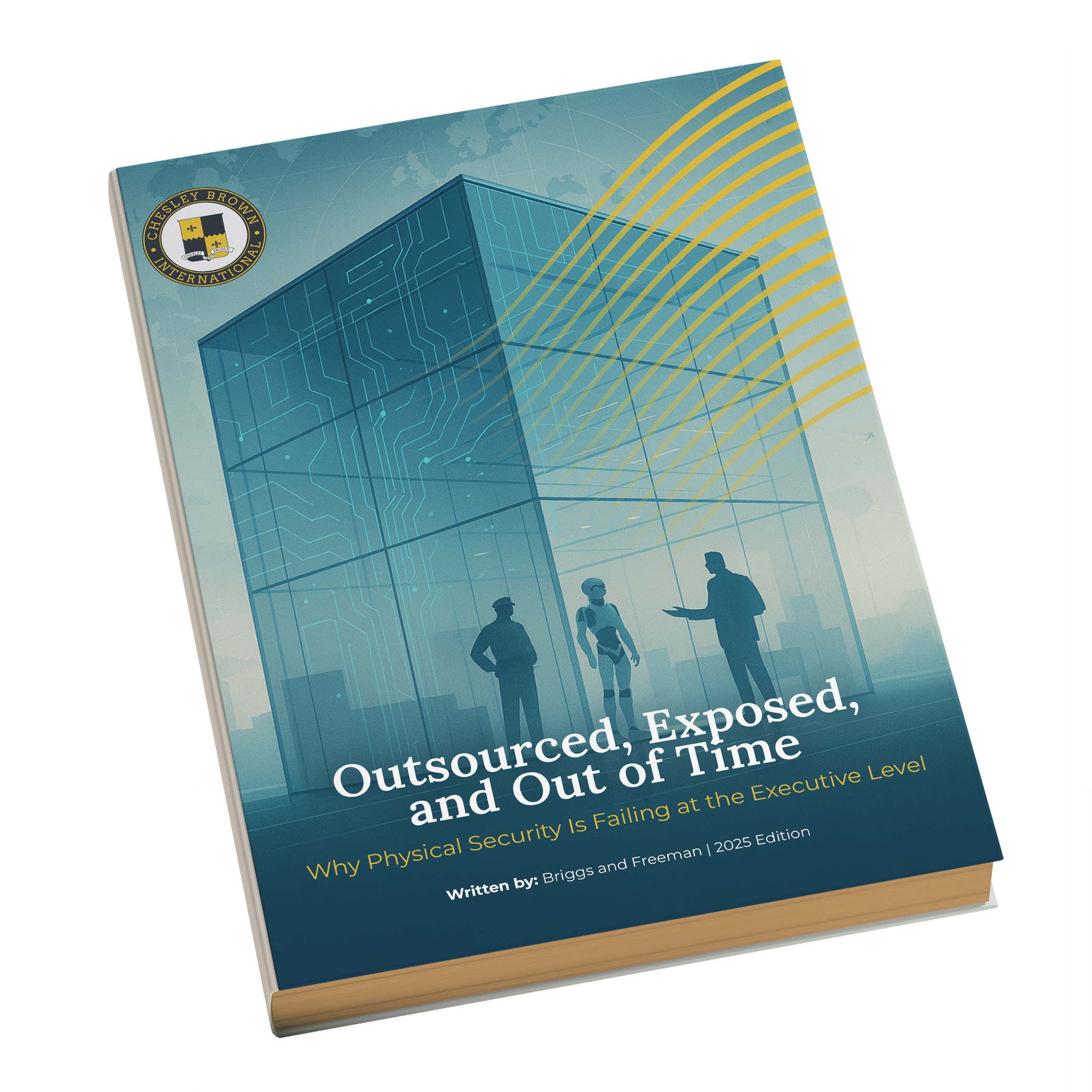Written by: James Hart
Overcoming the Biggest Security Challenges in Shopping Centers
The retail business has never been for the faint of heart. In recent years, however, security problems have made it even more challenging to operate a shopping center.
While individual shoplifters haven’t disappeared, organized rings of retail thieves can now pick store shelves bare in minutes. Not only is there an increased financial risk from these more sophisticated criminals, but many retailers also report that theft is increasingly accompanied by greater levels of violence.
Almost half of retailers said shoplifters are “much more” violent and aggressive compared to a year ago, according to the National Retail Federation’s 2023 Retail Security Survey. About half say attacks on employees and incidents involving weapons are more common now, too.
At the same time, more police departments are facing staffing issues and might not be able to deliver the same level of assistance as they did in the past.
Now more than ever, shopping centers must invest in their own security, said Bryan Taylor, vice president for eastern operations at Chesley Brown International, a security consulting and management firm. Taylor is an expert in retail risk management.
Having a robust security presence, he said, enables shopping centers to deter many crimes, respond effectively to the incidents that do occur, and, most importantly, create a safe environment that encourages customers to make return visits.
What does that look like in action? Here are some of the most common security challenges in shopping centers, along with best practices for addressing those problems.
Understand That You Might Be on Your Own
In the past, police officers naturally gravitated to shopping centers during their shifts, Taylor said. That might be where they grabbed lunch. And because the shopping center tended to draw larger crowds, it just made sense that police would spend some time on patrol there.
Over the last few years, however, many police departments have seen a wave of retirements and have struggled to hire enough replacements to be fully staffed. Minneapolis’ police department, for example, lost 40% of its workforce over the past four years. Other cities say they are down by hundreds or even thousands of officers from where their staffing levels should be.
As a result, shopping centers in some areas could find it difficult or even impossible to get rapid assistance from local law enforcement unless a serious, life-threatening crime is involved. Even centers with off-duty police as security — assuming there were off-duty police available to be hired — could struggle to get help quickly.
“What’s happening now is, there’s just not enough of them to go around in any community,” Taylor said.
That’s why it’s so important for retail operators to have professional security officers of their own.
“I think one of the keys to retail security is having security officers that are highly trained and able to act,” Taylor said.
How security operates will look different depending on the size and nature of the property. At a small shopping center, security officers might be doing well to perform store walkthroughs, handle parking issues, and escort shoppers to their vehicles after dark.
But what about a larger property? Maybe a regional mixed-use center with dozens of stores and multiple entertainment centers? Properly serving a location like that might require something that looks and functions like a private police force, Taylor said.
“Look at your security, and make sure you have a quality security team,” he said. “Retail theft isn’t something that will keep people from coming to your center, but what we notice at every retail center, with every retailer, is if people don’t feel safe, they won’t come out.”
There is some good news about police hiring. A recent 2024 survey from the Police Executive Research Forum suggests law enforcement hiring might be recovering, as the number of sworn officers grew in 2023. The biggest gains in hiring occurred at small and medium-sized departments.
Know Your Tenants
Different types of businesses come with different kinds of problems. Smart retail properties will understand what kinds of risks they’re inviting into their community so they can be prepared.
For example, a large “party” bar could end up attracting huge crowds of 20-somethings, leading to a higher number of drunk and disorderly incidents.
Security might have to deal with larger crowds around the building, too. Some of those people never go inside. They just want to see and be seen.
If your shopping center isn’t prepared for that kind of business — and if you don’t have a security plan that mitigates the accompanying problems — it could end up bringing down the entire shopping center.
“So properly vet your tenants, and just be aware of what level of security you’re going to need,” Taylor said.
It all goes back to making the customer feel safe.
“People want to feel safe when they’re on the property,” according to Taylor. “One of the things that we hear so often is, you know, I love the XYZ restaurant, but I don’t want to go to that property because there’s crime there.”
Security Can Deliver Great Customer Service, Too
Smaller shopping centers might focus on the basics, but larger centers will also make time for higher-level services, like security escorts from stores to vehicles.
For example, Taylor’s security officers carry maps of their shopping centers so they can give directions. Sometimes they even know a little about the area’s history and can share it with visitors.
Good customer service includes having plenty of officers on duty during the busiest shifts of the week.
“If you have one officer on duty on a Saturday afternoon, and that’s your peak time, that’s going to create problems for you,” Taylor said.
Having a Prosecution Policy Can Make a Big Difference
A lot of stores don’t press charges against shoplifters, which can prevent security teams from intervening effectively, Taylor said.
So, when a team of thieves swoops into a store and grabs every single pair of jeans in sight?
“There’s nothing that anybody can do,” he said. “We’re not going to engage the shoplifters. Police aren’t going to engage them, either. Nobody’s going to stop them to get your jeans back.”
The decision to prosecute often isn’t something that individual stores can control. For a retail chain, its national headquarters usually decides if they pursue criminal charges against shoplifters. And many of them simply choose not to pursue charges.
“They look at it as a write-off,” Taylor said. “They don’t want to spend the time going to court.”
That’s especially true if the store’s “loss prevention specialist” is a younger, less experienced employee.
This isn’t the case for all retailers, of course. Some larger stores have aggressive in-store security and will prosecute. And that can have a significant deterrent effect on shoplifters.
As Taylor said: “We’ve had shoplifters tell us, ‘We were warned about coming here. We should have just gone to the other mall.’”
Remember That Store Employees Need Security, Too
Customers aren’t the only ones who want to feel safe. So do the people who work in the shopping center’s stores and restaurants.
But they probably won’t feel secure if their shifts end and they must walk a quarter-mile to a badly lit employee lot. If the security situation is bad enough, it can even lead to worker shortages and force shops to close hours earlier than normal.
That was the situation at one of the properties that Taylor served. He suggested the shopping center invest in an eight-seat golf cart and use it to ferry workers to their vehicles.
“Have a security officer make a loop of the retail area, pick people up at closing time and drive them to their cars,” Taylor said. “And advertise it.”
That small perk could make the difference for stores that are competing for workers.
The Bottom Line About Retail Risk Management
Ultimately, shopping centers need to take responsibility for their own security.
Retail operators should definitely call law enforcement about life-or-death incidents, but don’t be surprised if police response times aren’t great for less serious events. Departments across the country have struggled to hire enough officers to be fully staffed.
Instead, operators should invest in an active, visible security presence that can deter criminal activity and respond to thefts, fights, and other disruptions. If they have permission, security officers can detain bad actors for arrest and eventual prosecution.
Security can also help with general “customer service” issues like parking control, escorts to vehicles, and directions. Their ultimate goal, though, has to be making customers and employees feel safe.
Retail risk management must be an active part of your operations. After all, if customers don’t feel safe in your shopping center, they will stay home.
“That’s just a big, big issue that you have to get out in front of,” Taylor said, “because it can kill business.”
Don’t leave the safety of your retail environment to chance. Chesley Brown’s expertise in security management and consulting offers tailored solutions to meet the unique challenges of shopping centers. Our comprehensive security assessments, highly trained officers, and proactive risk management strategies ensure a safe and welcoming environment for both customers and employees. Contact Chesley Brown today to secure your shopping center and safeguard your business’s success.
Sign up!
For industry-leading guides and analysis sign up for our blog below.
Latest News
Podcast | Risk Takers Series #9. Joe Sheram – The Turnaround Guru
Brent sits down with corporate turnaround expert Joe Sheram to discuss financial risk, corporate theft, the importance of cash, and some of the biggest challenges businesses face when navigating a crisis from a financial perspective.…
risk-takers #08. The State of Security – SPECIAL EPISODE
2020 has been a year full of change. In this week’s special episode Brent sits down with Vice Presidents Bryan Taylor, Josh Noland and Max Briggs for a lively discussion on the current state of security. The team discusses current trends affecting business owners, law enforcement, and employees and what to expect in the future. They also discuss how companies can help employees adjusting to the new norm. This is an enlightening conversation, where you’re sure to learn something new.
Podcast | Risk Takers Series #08. The State of Security – SPECIAL EPISODE
2020 has been a year full of change. In this week’s special episode Brent sits down with Vice Presidents Bryan Taylor, Josh Noland and Max Briggs for a lively discussion on the current state of…
What is Business Continuity?
Before completely rewriting your Business Continuity Plan, it helps to understand the fundamentals of business continuity. I put together the following FAQ to give you a better understanding of the underlying information and provide a…
risk-takers #07 Jack Barsky – Former KGB Spy
As part of our on going conversation around corporate espionage, we decided to sit down with a real KGB spy for some insider knowledge. In this week’s episode, Brent sits down with author and former KGB spy Jack Barsky to discuss the growing threat of corporate espionage, how bad actors can access a company’s most valuable secrets, and how that information gets used. This is one of the most fascinating episodes of the season, so tune in! You’re sure to learn a lot.





